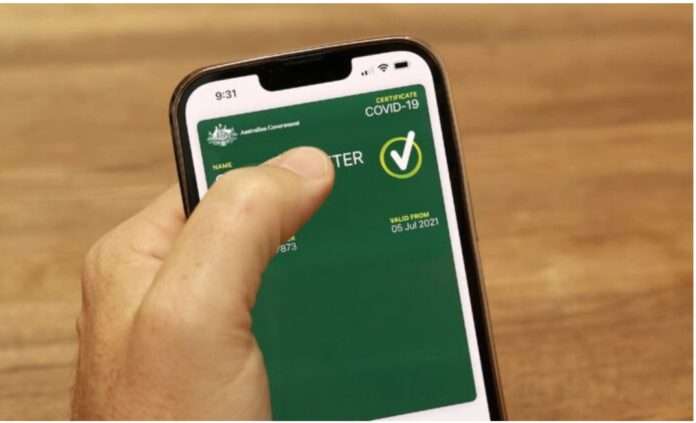Australia’s digital ID legislation isn’t just concerning the “tinfoil-hat brigade,” it’s also worrying mums and dads, grandparents, business owners, and farmers according to a parliamentarian.
Nationals MP Pat Conaghan, who represents the electorate of Cowper, told the Federation Chamber of Australian Parliament that “everyday people” are coming to talk to him about their concerns with the Digital ID Bill.
“They’re saying, ‘Pat, you’ve got to represent us in parliament against the Digital ID Bill,’” Mr. Conaghan said.
The bill will broaden Australia’s digital ID system for use by state and territory governments and the private sector. Australians can already use a digital ID to connect with government services including MyGov, Centrelink, Medicare, and the Australian Tax Office (ATO).
The legislation passed the Senate in March with support of Labor, Greens, and the Jacqui Lambie network. The Coalition, One Nation, and United Australia Party have all indicated they oppose the legislation in its current form.
On May 15, just a day after the federal budget, the government referred the Digital ID legislation to the Federation Chamber for debate. The legislation has now been referred back to the House and is set for consideration on May 16.
The federal government allocated $288.1 million (US$197 million) over four years to the digital ID bill in the federal budget. This included $155.6 million to the ATO, $46 million to Services Australia, $35.2 million to the Department of Finance, and $23.4 million to multiple departments to pilot the use of “government digital wallets.”
Thousands of people have signed a petition on the digital ID due to be presented in the Senate by One Nation Senator Pauline Hanson on May 16.
Privacy Concerns with Digital ID Bill
Mr. Conaghan said over the past six or eight months, an overwhelming number people who have been attending his mobile offices and emailing his office have been expressing their concerns about the Digital ID Bill.
“These are mums and dads, grandmothers and grandfathers, business owners and farmers. Everyday people out there are coming to talk to me about their concerns.”
Within the chamber, Mr. Conaghan read out multiple emails from constituents about their concerns.
“Digital ID will become the tool for big government and big corporations to monitor, track, and control us,” one of the emails stated.
Mr. Conaghan raised concerns that crooks and criminals will love the digital ID system and they are getting more and more sophisticated.
There were also concerns that a brilliant hacker could get access to the information and use it for their own purposes, potentially even hacking the system and completely erasing someone.
“This is not beyond the realm of possibility. You wake up one day, and, on paper, you no longer exist. You ring the bank and they say, ‘I’m sorry, you don’t exist anymore.’ You go to the hospital and they say, ‘I’m sorry, we don’t have any records of Medicare,” he said.
While the banks would welcome the passage of the legislation, he noted that within his electorate, there have been instances of accounts being frozen.
“Do you know who does want this bill? The banks. The banks want this bill, and they will worm their way into the government’s pockets and say, ‘We need this information for the betterment of society,’ and they will use your information for their own financial purposes,” he said.
Secure, Safe, Voluntary: Labor
However, Labor MP Graham Perrett rose to speak in support of the Digital ID, claiming the legislation is “long overdue.”
He argued the digital ID is safe and was put forward in response to the worrying number of cyber attacks and businesses.
“If you have a digital ID, you have a secure and convenient way to verify your identity when using online services. A digital ID takes the place of identifying yourself via traditional methods such as your birth certificate, your passport or your driver’s licence,” he said.
“It’s safer because then there aren’t multiple copies of your personal identification information being stored by different organisations—organisations that may be susceptible to cyberattack.”
Mr. Perrett said participation in the digital ID is “fully voluntary” and Australians will still be able to continue to access government services on the phone or in person if they do not have a digital ID.







